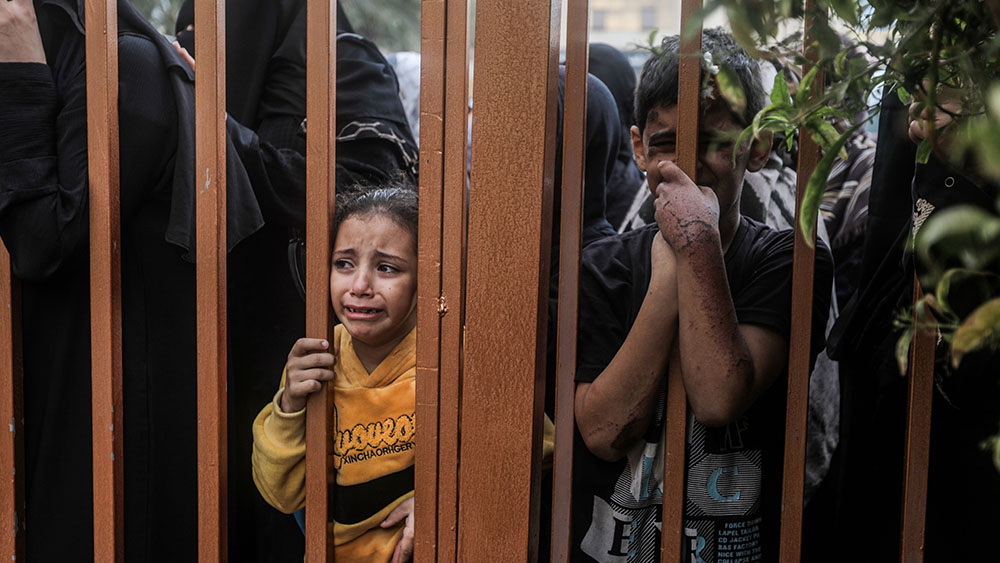Pittsburgh police will no longer respond to emergencies that are not “in-progress” – you’re on your own
03/15/2024 / By Ethan Huff

Unless a resident is facing an “in-progress emergency,” the Pittsburgh Police Department will no longer respond to 911 calls due to staffing challenges, shocking new reports indicate.
The types of 911 calls Pittsburgh police will have to ignore from now on include reports of theft, harassment and burglary alarms. Such calls will be routed to a special telephone recording unit where residents can file reports over the phone rather than in person.
Another planned cut is desk officers, which will no longer be on-site at the city’s six police stations between 3 a.m. and 7 a.m. Also, just 20 police officers will be available total for overnight shifts covering the entire city of Pittsburgh.
According to Pittsburgh Police Chief Larry Scirotto, the changes might sound scary but residents need not worry. The city’s limited resources will leave overnight shifts at a bare minimum, but daytime policing will remain the same.
“There is not any data to support us having our zones manned by personnel from 3 a.m. to 7 a.m.,” Scirotto said. “For the very one-off instance, I can’t make an exception.”
“Data said that from 3 a.m. to 7 a.m. that we had eight percent of our call volume, yet we had 33 percent of our personnel working during those periods of time.”
(Related: Austin is said to similarly be falling into lawlessness after the “defund the police” movement left its police department in shambles.)
Law enforcement union worried
Despite Scirotto’s reassurances, the Pittsburgh Police Officers’ Union is not so sure these policy changes are a good idea. Union president Bob Swartzwelder warned that the changes could violate contract provisions resulting from overcommitment and under-resourcing.
“The staffing plan designed by police command is a direct response to a seriously understaffed police department,” Swartzwelder said in a statement. “Only time will tell if the plan works or the Chief will need to pivot and modify his plan quickly.”
“The FOP will be watching carefully for any contract violations that develop especially when non-emergency events come up such as St. Patrick’s Day, parades, large concerts, July 4th, etc. In short, the FOP believes that the police department is seriously over-committed and under-resourced.”
Scirotto’s goal is to reduce the bureau’s call volume from 200,000 calls to just 50,000 calls this year.
“That allows our officers to be engaged in community in a way – now they’re at the YMCA instead of sitting on the 10th Street bypass with a bike complaint,” he said.
Most of the city’s parking issues will be offloaded to the Pittsburgh Parking Authority to further lessen the burden on city law enforcement officers.
“When there is an event that is not in-progress, we’re going to take and re-route that call to our telephone reporting unit,” Scirotto further explained about the changes.
As for burglary alarms, Scirotto says that of the 9,500 burglary calls that came in last year, the vast majority of them were false alarms. Even so, the department wasted 4,000 personnel hours responding to them.
“It’s not that we won’t respond to alarms,” Scirotto clarified.
“It’s that we’re going to require there to be a second verification, a second authentication factor, such as it’s not just the front door, if there’s interior motion, there’s video, there’s audio, there’s glass break.”
Another change is that officer scheduling will switch to 10-hour shifts four days per week, with one-hour breaks each working day to focus on mental health.
“I think the strategy at this point is a hope and a prayer that they can base everyone on data,” Swartzwelder added. “It may pan out to be correct. It may be disastrous.”
Sources for this article include:
Submit a correction >>
Tagged Under:
Collapse, crime, emergencies, Pittsburgh, Police, unrest
This article may contain statements that reflect the opinion of the author
RECENT NEWS & ARTICLES
COPYRIGHT © 2017 NATIONAL SECURITY NEWS





















